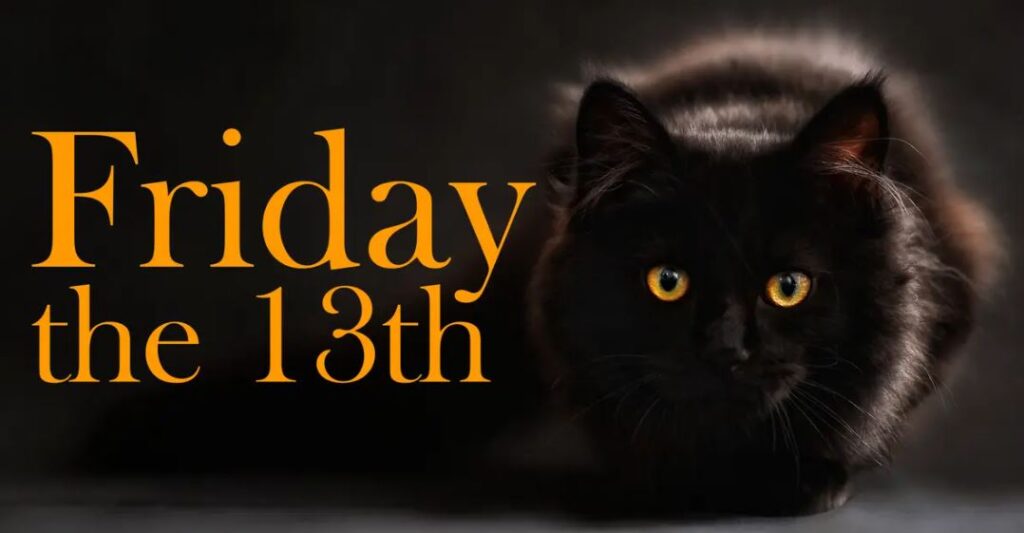
In India, superstitions shape daily life. Among these, Friday the 13th stands out as a day often linked to bad luck. This superstition has deep roots in various cultures, including Western traditions. However, it also resonates with many Indian beliefs. In this blog, we will explore the impact of Friday the 13th and other superstitions in India. We will discuss their origins, effects on society, and potential solutions for change.
The Origins of Friday the 13th
Friday the 13th combines two elements: the number 13 and Friday. Historically, both have been associated with misfortune. In Christianity, the Last Supper featured thirteen guests, including Judas Iscariot, who betrayed Jesus. This event led to a long-standing belief that having thirteen people at a table is unlucky.
In Norse mythology, Loki was the thirteenth guest at a banquet. His arrival caused chaos and death among the gods. This myth contributed to the stigma surrounding the number 13. Additionally, on Friday, October 13, 1307, many Knights Templar faced doom when authorities arrested them. These historical events solidified Friday the 13th as an ominous day across cultures.
Interestingly, not all cultures view Friday the 13th negatively! In some places, it is considered lucky! For example, in Italy, people see the number 13 as a symbol of prosperity. Similarly, in certain pagan traditions, Fridays were once associated with love and fertility.
Common Superstitions in India
India has a rich tapestry of superstitions that influence daily life.
Here are 13 notable examples:
- Black Cats: A black cat crossing your path often brings bad luck. Many people stop or change direction to avoid this omen.
- Cutting Nails at Night: Many believe cutting nails or hair at night invites misfortune. This belief is so strong that some avoid it entirely.
- Hanging Lemon and Chilies: This practice aims to ward off evil spirits. Many households hang a string of lemon and chilies at their entrance for protection.
- Peepal Trees: People often avoid Peepal trees at night due to fears of evil spirits residing there.
- Itchy Palms: An itchy right palm suggests incoming wealth, while an itchy left palm indicates loss of money.
- Sweeping After Sunset: Sweeping after sunset is thought to sweep away prosperity from the home.
- Wearing New Clothes on Festivals: Many believe that wearing new clothes during festivals brings good luck and blessings.
- Avoiding Certain Numbers: Numbers like 8 and 9 are often considered unlucky by many due to cultural beliefs.
- Crow Droppings Bring Luck: If a crow drops its droppings on you, it’s considered good luck! This superstition suggests that inconveniences lead to good fortune.
- Curd with Sugar Before New Ventures: Eating curd with sugar before starting something new is believed to ensure success.
- Mynah Birds: Spotting one mynah bird brings bad luck; spotting two brings good luck; six means money is coming your way!
- Eclipses Are Inauspicious: During eclipses, people avoid eating or going outside due to fears of bad luck or health issues.
- Tulsi Leaves for Good Luck: Swallowing Tulsi leaves without chewing is believed to bring blessings from goddess Lakshmi.
These beliefs can lead to irrational behaviors and decisions that dictate daily activities and influence social interactions.
The Psychological Impact of Superstitions
Superstitions significantly affect mental health. They create anxiety and fear about everyday life. For example, individuals may avoid important tasks on Friday the 13th due to fear of bad luck.
Dr. Phil Stevens, a retired anthropology professor, states, “Superstitions provide a sense of control over uncertainty.” This statement highlights how people cling to these beliefs for comfort; however, this reliance can lead to harmful consequences.
Statistics reveal that around 17% of people experience anxiety related to superstitions like Friday the 13th! This anxiety can hinder personal and professional growth.
Moreover, superstitions can lead to avoidance behavior. For instance, someone might refuse to travel or start a new job on this day due to fear of misfortune. Such patterns restrict opportunities and limit personal development.
Tragic Outcomes Linked to Superstitions
Several tragic cases in India link directly to superstitions:
- Sanjay Nagorao Pote Case (2014): In Maharashtra, a misguided exorcism led to murder when Sanjay Pote forced water into his uncle’s son’s mouth during a ritual.
- Rajaram and His Son (2019): A family member died during a violent exorcism ritual based on superstition.
- Anantapur Crow Incident (2018): A family’s irrational fear of a crow led to their deaths when they fled their home.
- Witchcraft Murders in Odisha (2019): Numerous killings besides this have occurred in Odisha due to witchcraft accusations fueled by superstition.
- Kerala Human Sacrifice Case (2022): Two women were murdered as part of a human sacrifice ritual based on superstitious beliefs.
These incidents illustrate how superstitions can escalate into violence and tragedy.
The Societal Impact of Superstitions
Superstitions affect various aspects of society:
- Health Choices: Some individuals refuse medical treatment due to superstitious beliefs about illness or healing rituals.
- Economic Decisions: Entrepreneurs may consult astrologers before launching businesses or making significant investments.
- Cultural Continuity: Superstitions often pass down through generations, reinforcing irrational beliefs within families and communities.
This cultural transmission reinforces irrational beliefs and behaviors that can hinder progress in society.
Education as a Tool for Change
Education plays a crucial role in combating superstitions in India! By promoting critical thinking and scientific reasoning, we can encourage individuals to question irrational beliefs.
Dr. Ramesh Kumar, a psychologist, states, “Education is key to breaking the cycle of superstition.” Schools should incorporate discussions about rational thinking into their curricula! This approach fosters an environment where questioning is encouraged.
Awareness campaigns can also help dispel myths surrounding common superstitions like Friday the 13th! By providing factual information and real-life examples, these campaigns empower individuals to make informed decisions rather than relying on outdated beliefs.
Community Engagement
Community engagement is vital for challenging deeply rooted superstitions! Local leaders can play an essential role in initiating conversations about rational thinking within their communities.
Workshops involving storytelling can be effective in addressing and dispelling superstitious beliefs humorously while educating participants about their origins and consequences! When people laugh together about absurdities like avoiding black cats or fearing Friday the 13th, they may begin to reconsider their own beliefs!
Challenging Superstitions with Humor
Humor plays an important role in challenging superstitious beliefs! Light-hearted conversations about common superstitions can reduce their power over individuals! For example, asking if anyone has ever seen a black cat bring bad luck can spark laughter rather than fear!
Additionally, memes about Friday the 13th circulate online each year! They add humor to an otherwise ominous day! One popular meme features a cat wearing a witch hat with the caption: “Don’t worry! I’m just here for your bad luck!”
To cite an instance from my family, my mom’s brother’s elder son was born on a Friday the 13th, in April,1979 and from what I heard from my aunt, she specifically wanted the delivery to be on that day. Incidentally, their younger son was also born on a 13th, again according to my aunt’s wish. But this time, she was not lucky to get a Friday as well. 😄
Using Satire as an Educational Tool
Satire serves as an effective educational tool against superstition! By mocking absurd beliefs through comedy sketches or social media posts, we can highlight their ridiculousness while encouraging critical thinking among audiences!
For instance, imagine a satirical news report claiming that every time someone avoids stepping on cracks because they fear bad luck on Friday the 13th, they actually summon more bad luck! Such humorous takes provoke thought while entertaining audiences at the same time!
Conclusion: Embracing Rationality Over Superstition
In conclusion, Friday the 13th serves as a reminder of how deeply ingrained superstitions affect life in India! These beliefs lead to irrational behaviors and tragic outcomes that hinder personal growth and societal progress! By promoting education and awareness through humor and community engagement, society can foster rational thinking over superstition!
As we move forward together against these ridiculous notions! Embrace knowledge over fear! Share your thoughts on how we can combat these beliefs in our communities and debunk superstitions like Friday the 13th!
Let’s create a future where logic prevails over superstition! Today is a dark, gloomy and rainy day in Bangalore; but that doesn’t dent my spirit or deter me from taking the day head on. Remember—if you see a black cat today, just smile! After all, it might just be your lucky day!

Even I’m born On
ON Feb 13th on Friday
So what’s am l ??
Manish, you should consider yourself one among the lucky few 😀
Good research! Superstitions stem from our basic insecurity. This insecurity we have inherited from our pre-historic ancestors.
I have a different take on your article.
You have listed a series of ‘bad lucks’. Someone may have had one’s own superstitions. After reading your article they may add on some more.
We as a society always practice some kind of superstitions in our daily life – such as referring to Raghu kalam, odd/even numbers, seeing crows, cats, and so on. We the adults of present generation are already doomed. What is required is to shield our children and grandchildren from inheriting these ideas from us.
If at all you discuss these believes, please do not do it in front of our children. That would be a great service that you do to your future generation.
By the way are you in Bangalore now?
Good research and insight. Hope it reaches the right people and conveys the message.
Thank you, Sindhu ji! Yes, it is high time that we as a society move aside from such medieval practices. That has to start from an individual level. Hopefully, the next generation is more rational in their thinking and are unlikely to fall prey to following senseless superstitions.